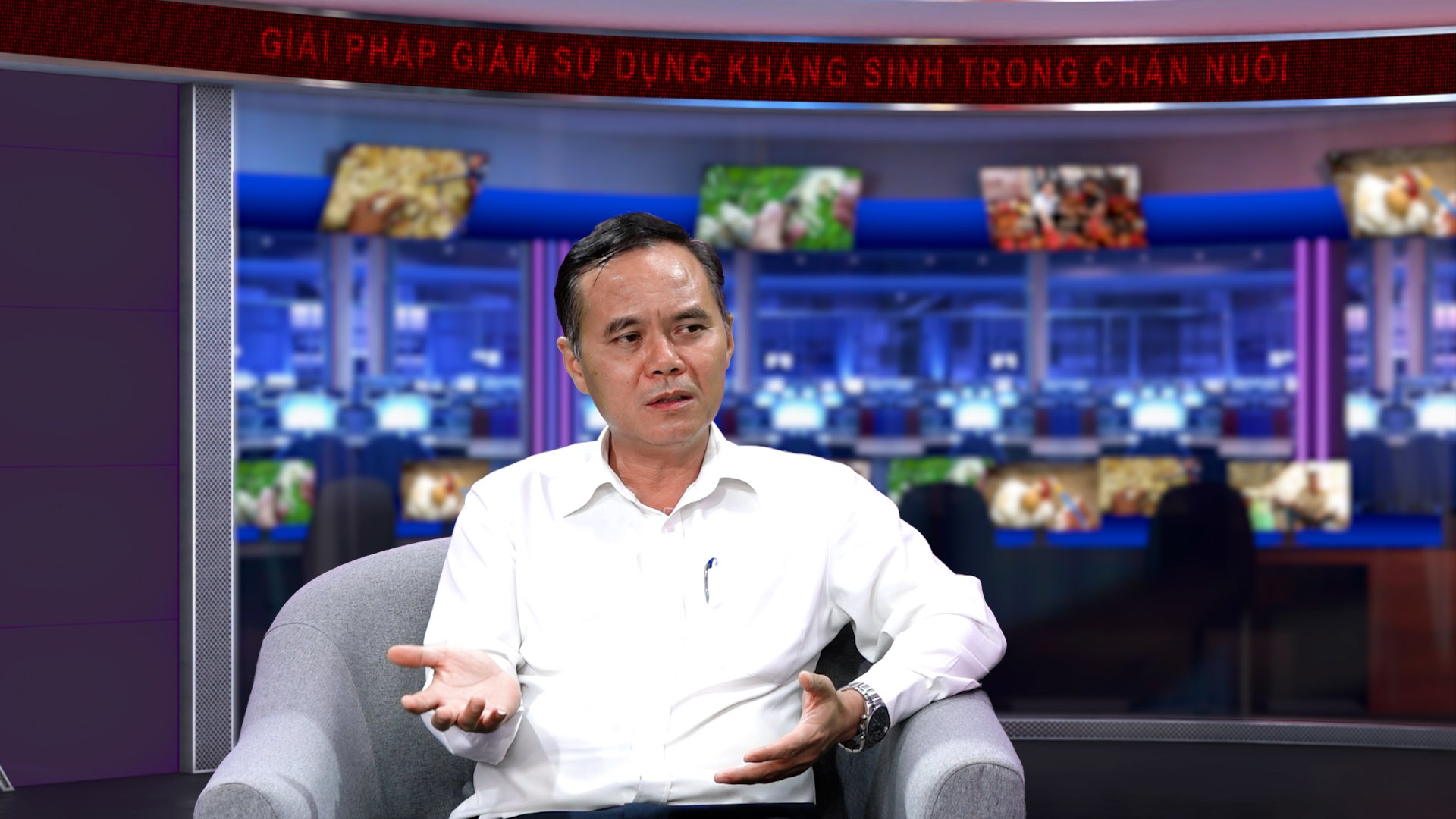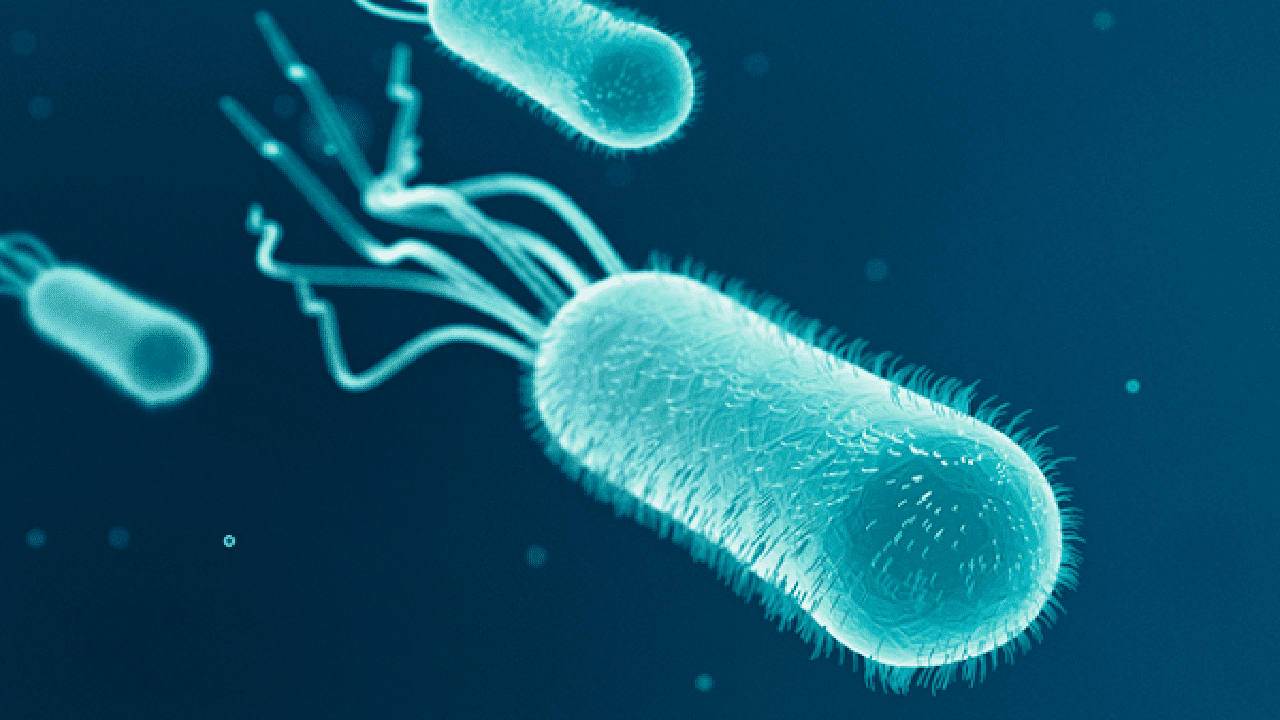November 26, 2025 | 10:43 GMT +7
November 26, 2025 | 10:43 GMT +7
Hotline: 0913.378.918
November 26, 2025 | 10:43 GMT +7
Hotline: 0913.378.918

Pham Kim Dang, Deputy Director of the Department of Livestock Production (MARD). Photo: Quang Linh.
Antibiotics are a type of drug mainly used to treat diseases caused by bacteria. Since the first antibiotic, Penicillin, was discovered by British scientist Alexander Fleming in 1928 and put into use to treat diseases in the 40s of the 20th century, hundreds of different antibiotics have been discovered by scientists.
However, the inappropriate use, misuse or abuse of antibiotics in the prevention and treatment of diseases for humans and animals has led to more occurrences of antimicrobial resistance, hence an increase of antibiotic-resistant bacteria worldwide. Antimicrobial resistance is a phenomenon that leads to ineffective treatment of infectious diseases in humans and animals, increasing the rate of injury and even death.
According to Pham Kim Dang, Deputy Director of the Department of Livestock Production, antibiotics play a very important role in securing human and livestock health. However, if antibiotics are used in the wrong way or overused, it will lead to the emergence of dangerous drug-resistant strains of microorganisms.
“For humans, antibiotic-resistant strains of microorganisms will make antibiotics have less to zero effect on diseases and increase the risk of death. In animal husbandry, antibiotic-resistant microorganisms also make it difficult to treat diseases due to the reduced effectiveness of antibiotics. The State, enterprises and research units have to spend more money to research new antibiotics instead.
The emergence of antibiotic-resistant strains of microorganisms leads to heavy consequences. What's more worrying is that bacteria can now be resistant to multiple antibiotics. Therefore, if the control of the use of antibiotics is not effective, at some point we will not have antibiotics to treat diseases in humans and animals," said Deputy Director Pham Kim Dang.

E. coli bacteria. Photo: QL.
Antibiotics were born with three main purposes: treatment, prevention and growth promotion. However, after a long time of use, scientists have proven that the use of antibiotics to stimulate growth and prevent diseases at low doses will cause antibiotic-resistant microorganisms to increase, especially in livestock.
Ha Minh Tuan, Deputy Director of Toan Thang Veterinary Medicine Joint Stock Company (Toan Thang Vet), said that research and survey results of the enterprise at many livestock farms show that the rate of antimicrobial resistance is increasing sharply in livestock herds.
Test results at a number of farms in the Northern region diagnosed by Toan Thang Veterinary Medicine JSC raised an alarming situation as E.coli bacteria appeared in many farms are 100% resistant to many antibiotics such as Tetracycline, Amoxicillin, Lincomycin, etc. In addition, some common bacteria such as Staphylococcus and Clostridium are also resistant to many antibiotics.
“Farms in the South send antibiotic results to Toan Thang Vet, and we were shocked to see E.coli bacteria in the intestinal tract of livestock are resistant to 15 different antibiotics. This is indeed an alarming situation for businesses, farms and farmers,” said Ha Minh Tuan.
Since 2006, Europe has officially banned the use of antibiotics for growth purposes. As a country developing husbandry towards international integration, Vietnam has internalized many treaties, international commitments, and trade agreements to which Vietnam is a member, paying particular attention to regulations on reducing the use of antibiotics in livestock.
According to the Law on Animal Health 2015 and the Law on Animal Husbandry 2018, Vietnam has banned the use of antibiotics in animal feed for growth purposes. As for the purpose of disease prevention and treatment, the antibiotics allowed to be used are those on the permitted list.
Pursuant to Circular No.12/2020/TT-BNNPTNT, Circular No.21/2019/TT-BNNPTNT and Decree No.13/2020/ND-CP dated January 21, 2020 of the Government detailing the Law on Animal Husbandry, three groups of antibiotics including “particularly important”, “very important” and “important” should not be mixed into feed for disease prevention purposes.
The “less important” antibiotic groups can be mixed with feed for disease prevention, provided that they are on the list of veterinary drugs allowed to be circulated. In addition, antibiotics are only allowed to be used in the production of animal feeds according to the prescriptions of persons with practice certificates as prescribed by the law.
Translated by Samuel Pham
/2025/11/24/3536-2-112800_176.jpg)
(VAN) Dong Nai now has tens of thousands of hectares of forests certified for sustainable management, and this area will continue to be expanded in the coming period.

(VAN) Vinh Ha hamlet (Dai Xuyen commune, Hanoi) is shifting away from small-scale farming as households adopt bioscurity into their breeder chicken models.

(VAN) Heavy rains make aquatic species more vulnerable to disease. Proactive water management and high-tech systems help farmers prevent outbreaks and protect yields.

(VAN) Greenhouses are shifting production mindsets in Binh Lu commune, enabling farmers to ‘weather the sun and rain’ and secure stable vegetable harvests throughout the year.

(VAN) Green transition is crucial for the Mekong Delta amid climate change and stricter standards, offering a path toward sustainability.

(VAN) Dong Thap promotes agricultural restructuring, forms large specialized farming zones, raises the value of agricultural products and develops toward ecological and high-tech directions.
/2025/11/22/4018-4-213342_747.jpg)
(VAN) The Mekong Delta Agricultural Experts Club has attracted 143 experts and researchers to participate in providing consultancy and contributing initiatives to the development of one million hectares of high-quality rice.